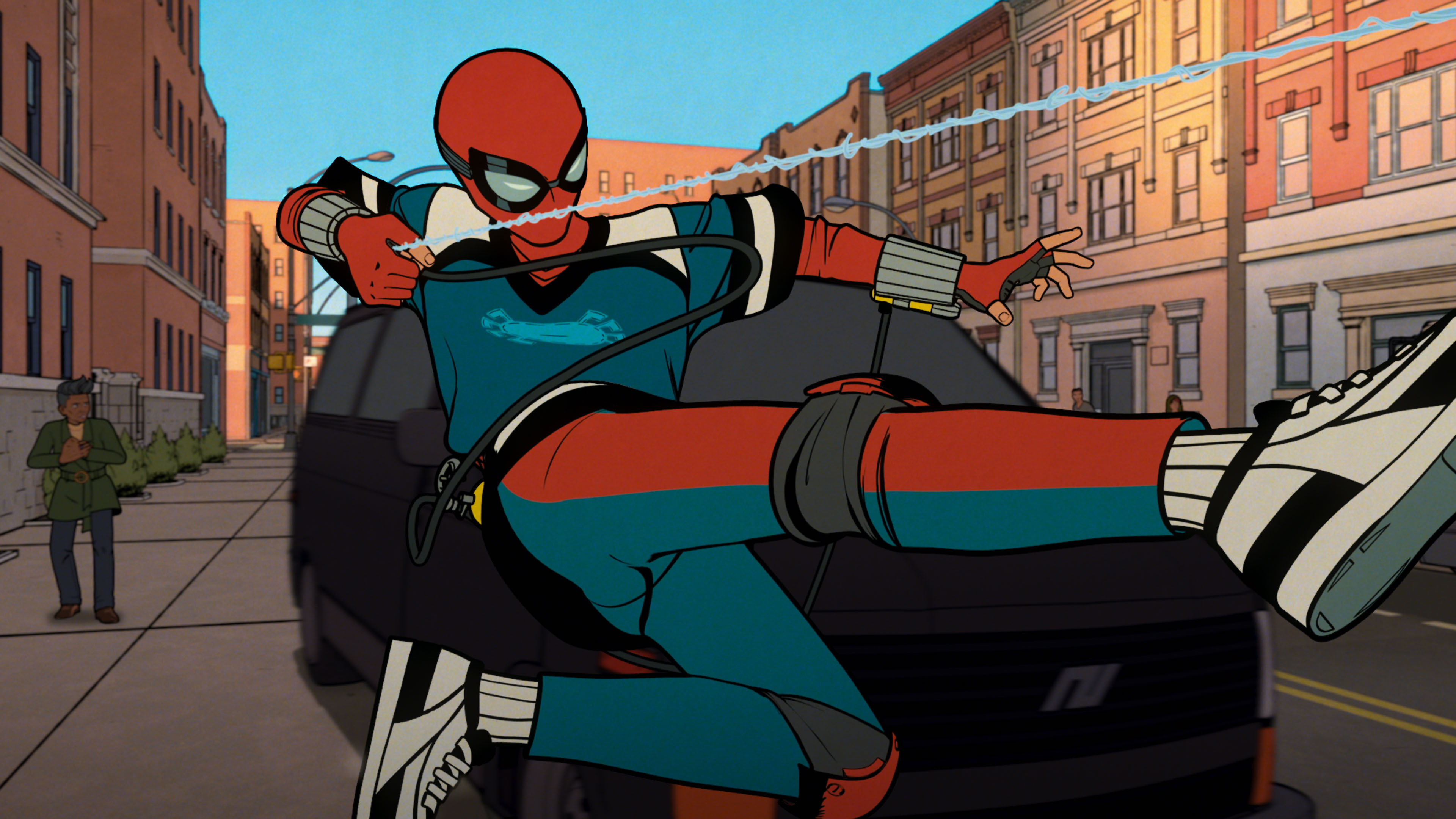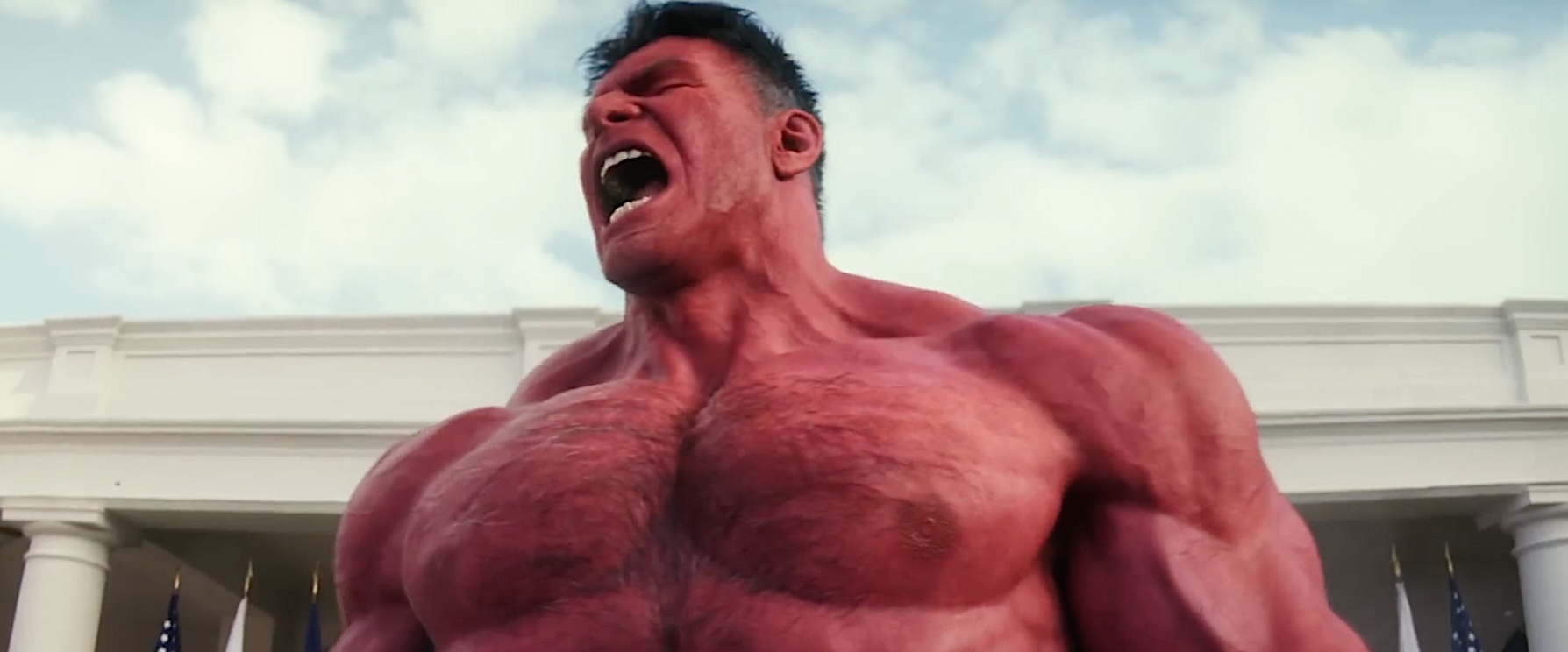There are a few baffling things about Captain America: Brave New World, but the one that’s keeping me up at night is how much the movie wants me to sympathize with Thaddeus “Thunderbolt” Ross (Harrison Ford, taking over for the late William Hurt), and how badly the filmmakers make their case.
Let’s temporarily ignore the debate over whether Thunderbolt Ross might be a metaphor for anything in the real world. This is just about basic character writing. Leave aside Ross’ MCU history of being a thorn in the side of the Hulk and the Avengers, as well. This is just about the cold, hard facts that Brave New World reveals about him — the elements of the plot for which director Julius Onah and the screenwriters were fully responsible.
Looking at this movie on its own, you have a situation in which the balance of “out of pocket things this guy did” and “noble reasons he did it” are so far out of whack that asking us to see him as a tragic figure goes right past laughable and into confusing. Nevertheless, Captain America: Brave New World insists, “Don’t you feel bad for him?”
I gotta tell ya: I sure don’t!
[Ed. note: This piece contains end spoilers for Captain America: Brave New World.]
Brave New World stresses one sympathetic factor about Ross over and over: He’s estranged from his daughter, who refuses to speak to him. He wants to prove to her that he’s “changed” from the man he was when she last deigned to give him the time of day, and for them to once again take walks together along Washington, DC’s Tidal Basin in the spring to see the cherry trees in bloom. That’s a reasonable enough trait for a character who’s meant to earn a little audience sympathy. It might be pretty convincing if Ross was just your average estranged father who’d done something in the past that he came to regret.
The problem is, according to all the other things Brave New World tells me about Thaddeus Ross, he’s not your average dad who screwed up. He’s a United States general who imprisoned an injured scientist without trial in a black site laboratory for 15 years, dangled a presidential pardon in front of him to coerce him into using his gamma-irradiated superintelligence to make Ross president of the United States, and then reneged on the deal.
In response, that scientist, Samuel Sterns slowly poisoned Ross with gamma-infused pills, turning him into a Red Hulk, and used his mind control powers to assassinate soldiers, implicate an innocent man, and otherwise disrupt numerous lives in an attempt to embroil the United States in an international conflict and destroy Ross’ refurbished legacy.
Now I’m not saying Ross is fully culpable for Sterns’ actions, but he’s certainly some culpable! Surely, even if Ross only wanted to become the president of the United States because he thought he was the right person for the job, he should have considered the consequences of earning a scheming supergenius’ ire — and the way the consequences of that ire would be amplified with Ross in power.
I mean — we don’t literally do background checks on presidential candidates to check for complications around evil supergeniuses, because supergeniuses don’t actually exist. But also… this kind of illicit connection is literally why we do background checks on presidential candidates. Because having a president who’s more vulnerable to blackmail, coercion, or non-presidency-related assassination than the average person is bad for a country!
But Captain America: Brave New World tries to tell us that Ross only manipulated, used, and cheated Sterns (and arguably, the American public) because he’s just so sad about his daughter! Betty Ross, former girlfriend of Bruce Banner, has good reasons for not talking to her dad, but Brave New World presents them swiftly and with little detail. That’s understandable because if it explained why she’s mad, the case for Ross-related sympathy gets precipitously worse.
I know I said Brave New World’s failure to convincingly gin up sympathy for Ross isn’t about his past MCU history, but I have to at least touch on it. Because this movie reveals that Thunderbolt Ross is a tremendous hypocrite: He was hunting down the Hulk between The Incredible Hulk and The Avengers; he was the U.S. Secretary of State sponsoring the Sokovia Accords in Captain America: Civil War; he was pursuing, arresting, and even courtmartialing heroes in Avengers: Infinity War, all in the name of policing the behavior of superhumans. And all the while, he himself was personally benefiting from his own secret superhuman mad (political) scientist to expand his personal and political power and extend his lifespan.
You simply can’t reveal that Thunderbolt Ross has secretly been doing full-ass supervillain shit for 15 years straight and, in the exact same movie, claim that’s excusable because all he really wanted was for his adult daughter to return his phone calls! And yet Brave New World tries to justify his motives, even with its final breaths.
In the end, Ross gets thrown in the same ocean-girded supermax prison he kept tossing the Avengers into. That’s a satisfying irony that’s immediately undercut when Sam Wilson (Anthony Mackie) shows up to tell Ross he should be respected for the utter bare minimum step of repenting of his actions once they became public knowledge (and not a minute before) and accepting the consequences.
Then Betty shows up to finally reconcile with her father. Why? She just found out his transgressions were an order of magnitude wider than previously thought! And yet she gives him what we’ve been told was the one thing he wanted all along.
It’s tricky to lay the blame here, and not just because Captain America: Brave New World has no fewer than five screenwriters. Based on various reports and distinct differences between footage shown in trailers and the actual scenes that made it into Brave New World, it seems possible — even likely — that the Thaddeus Ross in the final version of this film was altered and softened over the course of the movie’s troubled development.
We’ll likely never know to what extent Brave New World’s baffling “sad dad feelings excuse any crimes” undercurrent was part of its creators’ original intent and what was a side effect of rewrites. But I can say this — and then maybe get a night of sleep without sitting up to go “AND ANOTHER THING…” — you can’t make a guy the fully cognizant, totally willing source of all the globally significant problems in a movie and also expect me to feel bad for him because he just wants to look at the cherry blossoms with his kid again.










